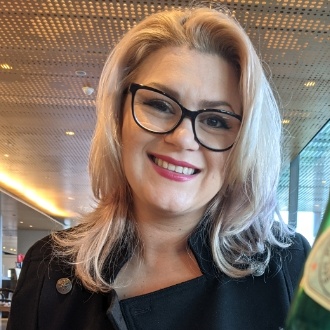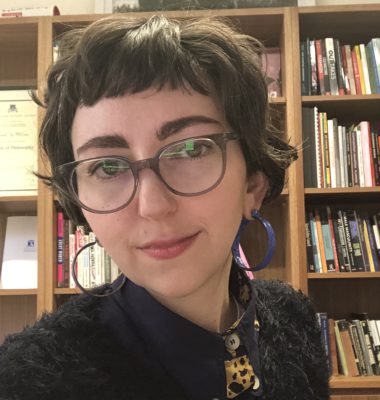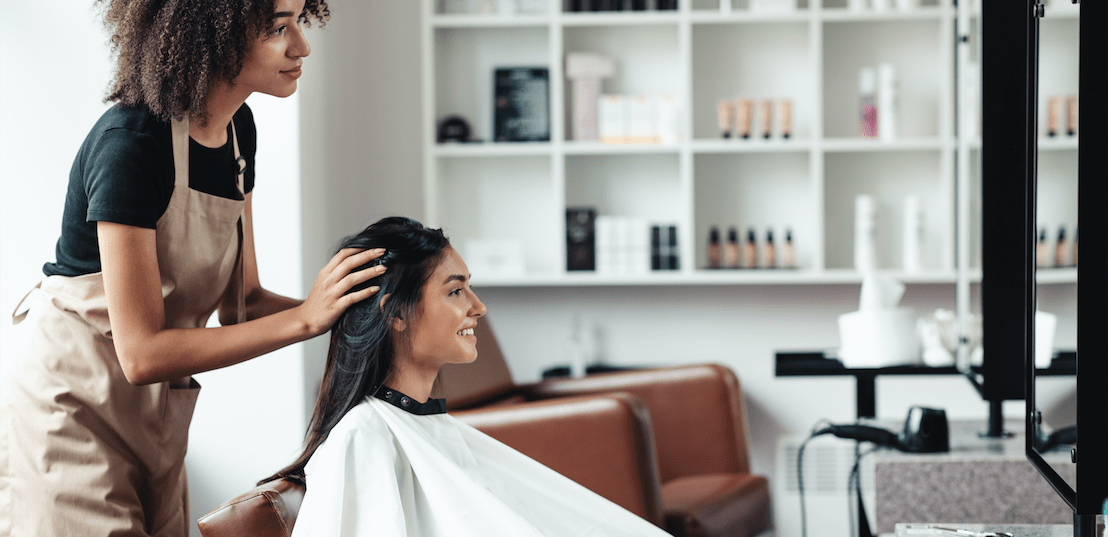Pandemic-era lockdowns have seen many people talk about how they have missed their salons, yet discussions have largely focused on appearances. What else do people miss when they cannot visit their hairdresser? The research of Stacey Mary Page (University of Adelaide) and Dr Hannah McCann (University of Melbourne) shows that an appointment involves a lot more than just hair – salons can be spaces of social and emotional support. Here, they explain that research and the profound impact hairdressers can have.
What clients reveal to their hairdressers
The hairdresser-client relationship fosters a unique support system, whereby clients often feel comfortable discussing intimate details about their lives with their hairdresser. This includes topics they may not disclose to others, partly due to various social and psychological barriers in seeking formal help. Interviews with hairdressers in 2019, conducted by Page in Adelaide,showed that clients talk about a huge range of intimate topics.
This includes talking about family, ranging from topics of divorce, the affairs that clients or their partners have had, sexual abuse, child abuse, to domestic and family violence. It also includes mental healthdisclosures, about experiencing anxiety, depression and daily stress, and even discussions of suicide. Clients also talk about their personal Identity including disclosures about aging, religious and political views, experiencing homelessness, being part of the LGBTQIA+ community, and struggling financially.
Discussions of physical health were also common, including prescribed medication, using and abusing drugs and alcohol, describing explicit details about their sex life, conversations about being diagnosed with or loved ones having cancer, and dealing with death and funerals. Women’s health discussions included the peril of menstruation and menopause, views on abortion, having miscarriages and the journey of pregnancy.
Hairdressers respond to disclosures by listening and monitoring body language, often treat clients like family or friends, keep confidentiality and remain client focused. Many hairdressers provide advice, yet are often cautious, and some also refer clients on to formal support. Sometimes hairdressers blur boundaries of their professional role, which may lead to safety issues and repercussions for both client and worker.
The hairdressers interviewed also expressed that they felt emotionally drained and undervalued in their role, stating ‘there is more involved in hairdressing than just the hair service’. Hairdressers said that they love their job however, they need and want support around managing the emotional aspects of their job. The lack of training and support has serious implications, because without appropriate support salon workers are at risk of emotional burnout. Clients’ mental and physical well-being may increase from receiving informal support from their hairdresser, however, providing this without training and resources may negatively impact the mental and physical well-being of hairdressers.
Family violence training
While there is largely no systematic training in place for people entering the industry, recent years have seen the emergence of programs that help salon workers address specific issues with clients, like family violence. One key example of this is the HaiR-3Rs program in Victoria, run by the Eastern Domestic Violence Service (EDVOS). Launched in January 2018, the program has trained hundreds of salon workers to recognise, respond to, and refer clients around the issue of family violence.
In 2019 Dr McCann spent time interviewing salon workers who had completed the HaiR-3Rs training. The aim was to see whether workers found the program useful, or whether it adds extra expectations to an already overburdened workforce. Like Page, Dr McCann found in her interviews that many salon workers feel like makeshift counsellors or therapists, with little support or training for this aspect of the work. As Adrienne (not real name) suggested, “‘I guess for me working in this industry has always felt like you’re a bit of a counsellor anyway because people feel very comfortable and so they open up to you more”.
With respect to the HaiR-3Rs program, overwhelmingly salon workers reported that the training helped them to feel less burdened in their day-to-day jobs, because they were given the tools to know what to do when a client discloses family violence and the appropriate services within the community to refer these clients on to. The HaiR-3R’s program is ongoing, and other similar programs have launched, like Hairdressers With Hearts (QLD) and Conversations in the Chair (VIC and NSW).
What needs to change?
There have been some moves to introduce units around family violence in TAFE courses for new salon trainees, but so far there has been nothing standardised put in place across Australia. While one-off training programs like HaiR-3Rs are great for equipping salon workers with new skills, early training would mean such concepts could be introduced early in people’s careers and in a more widespread fashion.
Importantly however, both Page and Dr McCann’s research shows that salon workers can encounter many difficult conversations with clients beyond the issue of family violence. This suggests that there is an opportunity – indeed a need – to connect workers early on with a range of community services, who may be able to provide advice on how to manage disclosures ranging from mental health concerns to terminal illness and grief, and everything in between. While many salon workers develop excellent social skills from years of being on the job, there may be great benefits for workers and clients alike in introducing these social skills early on.
Stacey Mary Page is currently working on her PhD at The University of Adelaide’s School of Psychology, Faculty of Health and Medical Sciences. Her published research is based on hairdressers providing informal care to their clientele. Investigating the topics clients tell their hairdresser, how hairdressers respond to client disclosures and how hairdressers feel about being social supports for their clients. Stacey’s PhD research aims to explore hairdressers’, barbers’, and clients’ perspectives on social support, including benefits of wellbeing and risks of emotional burnout. Stacey would like to advocate and create training for hairdressers to effectively deal with the role of supporting clients safely and ethically. Stacey is a qualified hairdresser and make-up artist, providing a unique insider perspective to research in this area. Stacey is also a board director for The South Australian Hair and Beauty Industry Association (SAHBA). You can find out more at researchers.adelaide.edu.au/profile/stacey.page

Dr Hannah McCann is a Senior Lecturer in Cultural Studies at The University of Melbourne. She is currently working on a project exploring the relationship between salon workers and their clients, and the implications that the emotional side of salon work has for the industry. You can read more at www.beautysalonproject.com

If you or a client needs urgent extra emotional support, you can contact Lifeline on 13 11 14.
More on the HaiR-3R’s program, including how to sign up for future training, can be accessed at www.hair3rs.org.au
Catch up with INSTYLE and Styleicons!
- Subscribe to our bi-monthly magazine
- Check out www.styleicons.com.au
- Subscribe to our twice-weekly newsletter
- View our digital magazine
- Follow us on social media on Instagram, Facebook and LinkedIn
